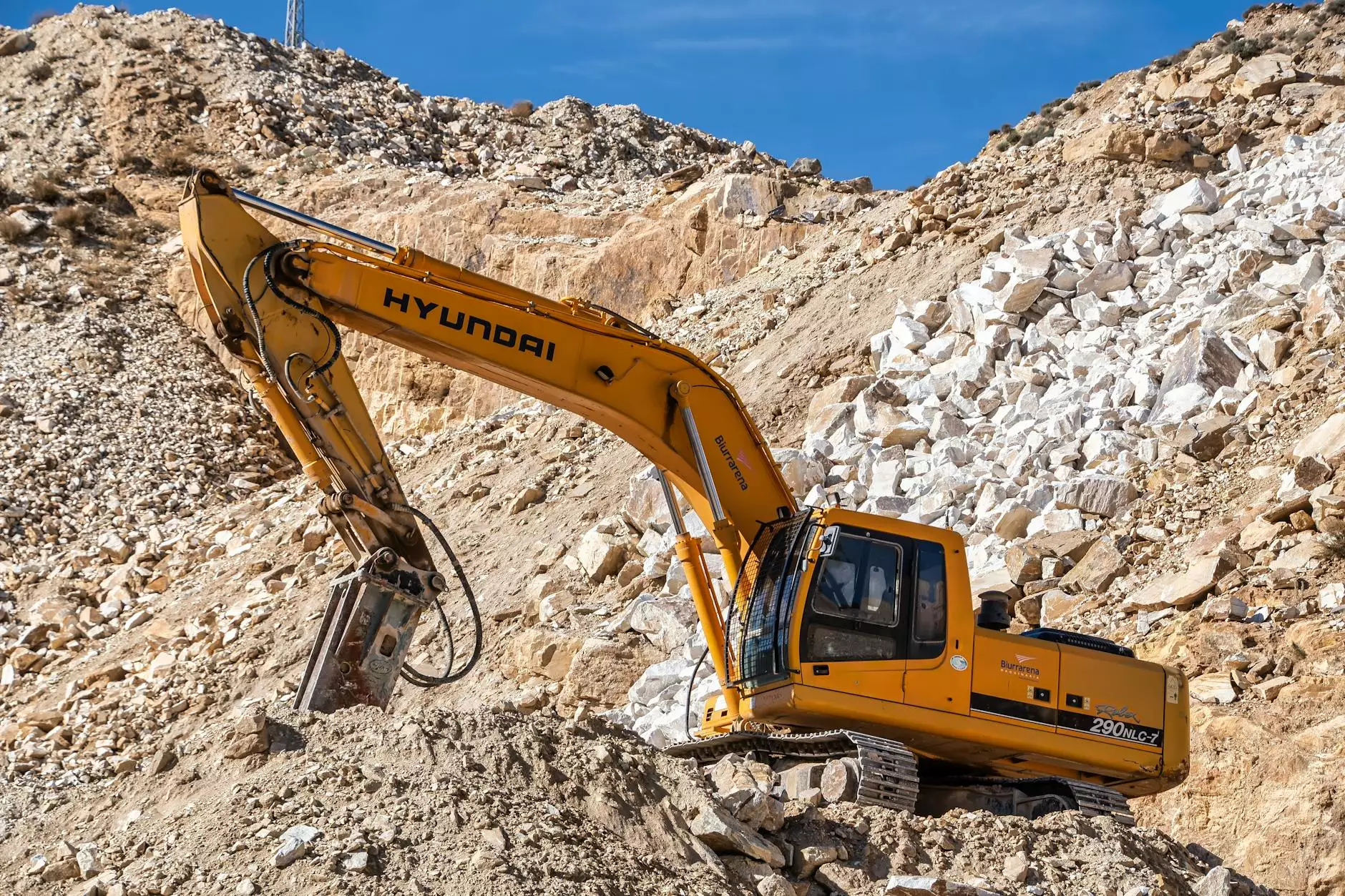Understanding Hydraulic Excavator Components: A Comprehensive Guide

In the dynamic realm of construction and heavy machinery, hydraulic excavator components play a pivotal role in ensuring efficiency and reliability. These components facilitate the powerful operations that excavators are known for, allowing them to perform tasks ranging from simple digging to complex demolition. This article delves deep into the various components of hydraulic excavators, their functions, and their significance in enhancing overall operational efficiency.
What are Hydraulic Excavators?
Hydraulic excavators are robust machines primarily used for earthmoving projects. They are characterized by their unique design, which includes a boom, dipper (or arm), and bucket. Utilizing hydraulic power, excavators can lift large amounts of material, dig, and perform heavy lifting tasks with precision. The efficiency of these machines largely depends on the integrity and effectiveness of their individual hydraulic components.
Key Hydraulic Excavator Components
Understanding the various components of a hydraulic excavator is vital for maintenance, repair, and optimal operation. Below, we will explore several critical hydraulic excavator components:
1. Hydraulic Pump
The hydraulic pump is the heart of the hydraulic system. It converts mechanical energy into hydraulic energy by moving hydraulic fluid, which creates pressure throughout the system. There are two main types of hydraulic pumps used in excavators:
- Gear Pumps: Simple and efficient, gear pumps are the most common type used in excavators.
- Piston Pumps: Known for high pressure and efficiency, piston pumps are used in larger excavators for demanding tasks.
2. Hydraulic Cylinders
Hydraulic cylinders are crucial in facilitating the movement of the excavator arms. They convert hydraulic pressure into linear motion, allowing the boom, arm, and bucket to move. Each cylinder is designed to withstand high pressures, ensuring durability and reliability in operations.
3. Hydraulic Fluid
The hydraulic fluid serves as the medium for energy transfer in the hydraulic system. It is essential for lubricating the components, preventing wear and tear, and dissipating heat. Common hydraulic fluids include oil-based and water-based fluids, each selected based on specific performance needs.
4. Valves
Various types of valves control the flow of hydraulic fluid within the system. They are instrumental in managing the speed and direction of the excavator's movements. Key types of valves include:
- Directional Control Valves: These guide the hydraulic fluid to different functions such as lifting or tilting.
- Relief Valves: Essential safety devices that prevent excessive pressure that could damage the system.
- Flow Control Valves: Manage the speed of hydraulic fluid flow, influencing the speed of the excavator's movements.
5. Hydraulic Hose and Fittings
Hydraulic hoses and fittings transport the hydraulic fluid from the pump to various components. They must be of high quality to withstand high pressures and prevent leaks. It is crucial to regularly check hoses for wear and tear as a failure can lead to significant operational downtime.
The Importance of Maintaining Hydraulic Excavator Components
Regular maintenance of hydraulic excavator components is essential for operational efficiency. Neglecting maintenance can lead to increased wear, unexpected breakdowns, and costly repairs. Here are several maintenance tips:
- Regular Fluid Checks: Ensure that hydraulic fluid levels are adequate and the fluid is clean to prevent contamination.
- Inspect Hoses and Fittings: Regularly inspecting for abrasions or leaks can prevent bigger issues down the road.
- Monitor for Unusual Sounds: Any abnormal noises can indicate issues within the hydraulic system that need prompt attention.
How Hydraulic Excavator Components Enhance Business Operations
Understanding and investing in quality hydraulic excavator components can lead to significant advantages for businesses in the construction industry:
- Increased Efficiency: Well-functioning components ensure that excavators operate at optimal levels, thereby increasing project turnaround times.
- Cost Savings: Investing in quality components reduces the likelihood of breakdowns and repairs, leading to lower operational costs.
- Enhanced Safety: Regular maintenance and the use of top-quality parts lead to safer operations, reducing the risks of accidents on-site.
Conclusion
In the competitive landscape of construction and heavy machinery, understanding and investing in hydraulic excavator components is essential for achieving operational excellence. As businesses strive to improve efficiency, reduce costs, and enhance safety, the role of quality hydraulic components becomes increasingly significant. At Shop Hydraulic America, we offer a wide range of high-quality auto parts and supplies, ensuring that your excavators are equipped with the best components on the market.
By keeping up with best practices for maintenance and component quality, you can ensure that your hydraulic excavators operate efficiently and effectively, giving your business a competitive edge in the industry.









